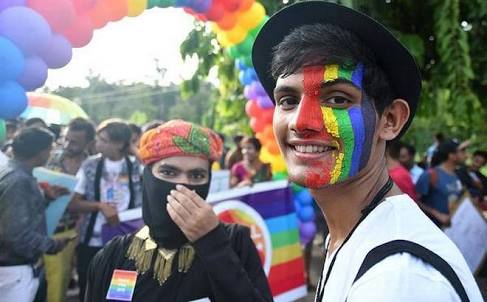Previous studies have found that LGBT acceptance is associated with LGBT mental health. Recent research from India, published in the Medico-Legal Update, examined medical students’ awareness and attitude regarding Lesbian, gay, bisexual, and transgender (LGBT) people and discrimination.
“Perception and knowledge towards LGBT patients in health care is an important but infrequently assessed issue in India,” Pawan Wankhade, the head of Department Forensic Medicine and Toxicology at Chandulal Chandrakar Memorial Medical College, explains.

Medical professionals’ attitude toward LGBT individuals impacts their willingness to provide appropriate medical services to LGBT individuals. In light of the recent Indian Supreme Court decision on Section 377 of the Indian Penal Code (ruled legal sanction to consensual homosexual sex between adults was unconstitutional), LGBT rights in India have gained more attention. However, many health professionals remain reactive instead of proactive.
This study examined and analyzed 200 medical undergraduate students’ responses to various questions regarding their knowledge of and attitudes toward LGBT patients. Those questions included (1) students’ awareness of the discrimination faced by LGBT people, (2) students’ acceptance level of LGBT people, (3) students’ awareness of recent Supreme Court Judgment regarding Section 377 IPC, and (4) students’ attitudes towards LGBT people.
The results showed that second-year students have more knowledge regarding LGBT issues than first-year students. 69% of students (mostly second-year students) were aware of the recent judgment regarding Section 377 IPC. 13% of students (all first-year students) were unaware of the term transgender. 42% and 30% of students (mostly first-year students) were unaware of the terms queer and homophobia. Also, 71% of students believed that LGBT individuals are more likely to be infected with STIs, and 63% of students believed that LGBT individuals are more likely to engage in substance use.
“Among the different sources of information regarding LGBT issues, lectures were a principal source for second-year students whereas peers were a principal source for first-year students,” the researchers write. “Academic lectures play a vital role in understanding the different related terminologies and problems faced by LGBT people and different ways to address such problems.”
As for the acceptance level, most students reported acceptance of LGBT individuals as a patient (92.5%), teacher (80.5%), neighbor (78.5%,), senior/authority (75.5%), and friend (69%). However, the acceptance level dropped to 54% when students were asked about accepting an LGBT individual as a family member. In addition, 41.5% students did not accept same-sex marriage. In the medical setting, 91.5% of students found doctors’ discrimination toward LGBT patients to be a serious issue.
Other important findings included (1) 91.5% of students believed that LGBT individuals are equally competent at work and 96% of students supported equal opportunities for LGBT people, (2) 73.5% of student were against violence or discrimination based on sexual orientation, (3) 93.5% and 91% students believed that public education and sexual education in school are effective ways to address the problem of discrimination, (4) 88% students found discrimination at the workplace as a serious issue and 66% of students supported separate legislation to outlaw discrimination based on sexual orientation.
The authors called for more public education and policies to promote knowledge regarding LGBT people from local authorities, policymakers, schools, and families. National and state governments should introduce separate legislation to outlaw discrimination and develop initiatives to create LGBT-inclusive workplaces.
“Training needs to be conducted for health professionals to increase their understanding of LGBT identity as a potential risk factor for self-harm, suicidal behavior, and depression,” the authors recommend. “Respective authorities should ensure that health, mental health, and social care services are provided in a way that is accessible and appropriate to LGBT people.”
****
Nagrale, N., Wankhade, P., Gathe, B., & Dongre, A. P. (2020). Knowledge & Perception Of Medical Students Towards The LGBT (Lesbian, Gay, Bisexual & Transgender) Patients & Their Rights: A Cross-Sectional Study. Medico-Legal Update, 20(1), 31-37. (Link)














